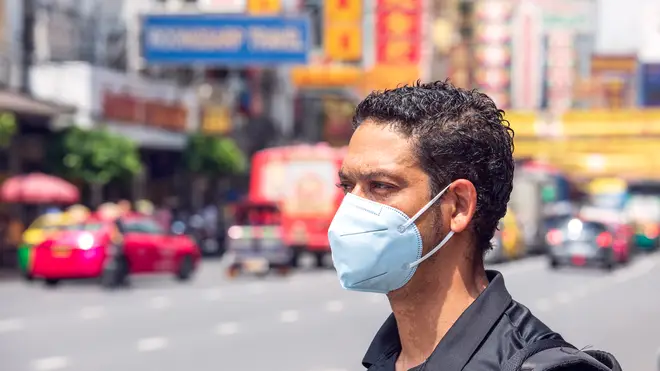On Air Now
Rob Howard and Kelly Brook 4pm - 7pm
29 July 2020, 12:12 | Updated: 29 July 2020, 12:17

Men over 6ft are twice as likely to get infected, scientists have claimed
Scientists have discovered that being tall could more than double your chance of testing positive for Covid-19.
Researchers in the UK, Norway and the US used data from 2,000 people, and discovered that men above 6ft were twice as likely to be diagnosed with Covid-19.
The study also found that women over 6ft tall had higher odds, but there were not enough tested to make this reliable.
According to the scientists, the results do not necessarily mean tall people are genetically more likely to catch Covid, but instead indicate it is spread through particles in the air.

This would make taller people more at risk of the airborne virus, whereas transmission through sneezing or coughing would produce larger droplets that fall to the ground.
Read More: School faces major backlash after demanding children's face masks have to match uniforms
Prof Evan Kontopantelis, from the University of Manchester, told the Daily Telegraph: “The results of this survey in terms of associations between height and diagnosis suggest downward droplet transmission is not the only transmission mechanism and aerosol transmission is possible.
“This has been suggested by other studies but our method of confirmation is novel.
“Though social distancing is still important because transmission by droplets is still likely to occur, it does suggest that mask wearing may be just as if not more effective in prevention.
“But also, air purification in interior spaces should be further explored.”
Officials at the World Health Organisation admitted earlier this month that there is ‘evidence emerging’ coronavirus can be spread through the air.

This Morning's Dr Ranj Singh issues children's face mask warning as new rules come into force
The paper - which is yet to be peer reviewed - also explored the impacts of personal characteristics, circumstances and working conditions on the spread of the virus.
Those taking part were asked about things such as their employment status, income, if they live with other people and whether they socialised
However, some experts have warned the findings should be ‘interpreted with caution’.
Professor in medicine at the University of East Anglia, Paul Hunter said: “The authors analysed a substantial number of possible predictors for a range of outcome measures.
“One of the biggest mistakes that people make with epidemiological surveys is multiple hypothesis testing. The more hypothesis tests you do the more likely you are to flag up associations that have only arisen by chance.
“In my view this analysis does not even provide convincing evidence that tall people are protected from the infection never mind whether this means that there is aerosol transmission.”
Now Read: Nurseries told they must offer refunds to parents who paid during lockdown